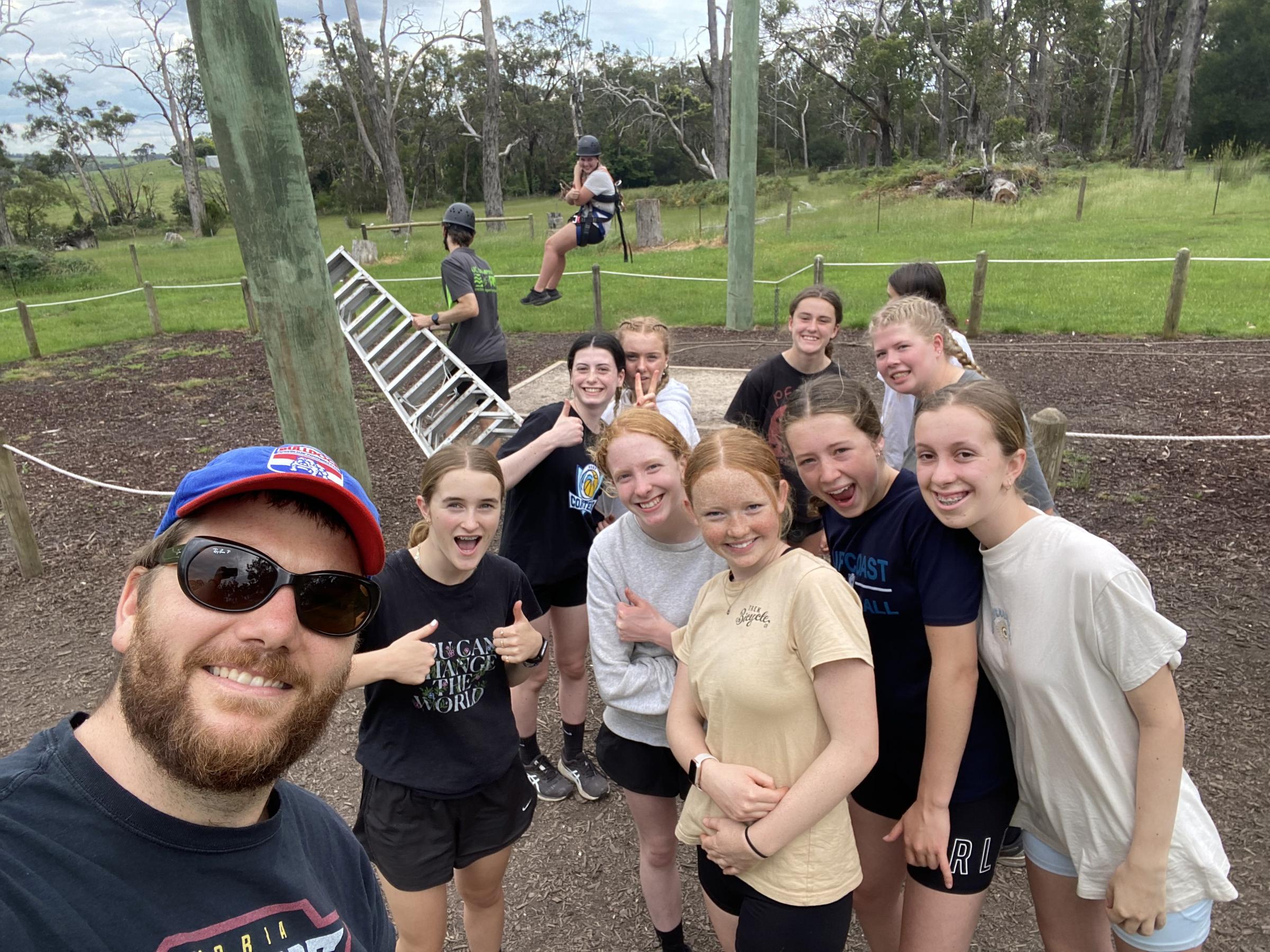WELLBEING

SURFSUP WITH THE WELLBEING TEAM
A big Hi from the Wellbeing team as we journey into the last half of Term 4 2022.
The Wellbeing Team have certainly felt the absence of our graduating Year 12s over the past weeks but the feeling of excitement for them as they start their journey into the post school world keeps us smiling. We can feel a new energy as the 2023 senior students start to pick up the pace as they head into transition week. What a wonderful opportunity to challenge oneself and lean into our strengths as change comes into our lives.
This leads us wonderfully into this fortnights newsletter which will look at Transitions, change, strengths, and challenges.
Making Change a Positive Experience:
As students start to transition into the next year of schooling it can feel like a difficult time for some students, who have to find their way around a new timetable, new parts of the school, new classmates and different teachers. Worrying about these things can contribute to feelings of anxiety and stress, which can impact on a student’s wellbeing. There are lots of things we do as a school to support students in their new environments, including over the coming weeks programs to introduce them to their classes, teachers and supportive networks.
Here are 10 Top Tips for starting the new year right...
- Be positive about the transition - Build excitement by talking about all the new opportunities for friendships and activities they’ll have.
- Practice the new school routine– It might sound silly, but practicing the new timetable beforehand will really reduce first day nerves.
- Arrange a chat with an older student who’s been through it – If there’s a neighbour or cousin who’s been there don that in the past organise for them to hang out and hear what it was like.
- Make sure everything is organised – Uniform, books and bag are essentials for starting a new school year so help them sort it all out before day one.
- Start afresh with a tidy room and desk – If their desk or room is shared make sure the rest of the family are on board with keeping things sorted.
- Farewell the holidays - Organise a social day just before school goes back to farewell and, if possible, invite friends
- Don’t commit too early – It sounds strange, but with the stress of a new school year it’s easy to jump at the first people that speak to you. Encourage your teen to be social and not rush getting a new best friend. Good things come to those who wait!
- Avoiding comparing the new to the old – Get your teen to look to the future even if they’re missing their 2022 a bunch.
- Sign up to things straight away - Research extra-curriculars and help them decide on some they’ll sign up to in their first week.
- Prepare them for stress - The unknown can be really scary, but things like breathing exercises, getting active, and having "me-time" can all help with the transition.
Tips for Students – Click on the ReachOut links to further reading:
Instead of seeing themselves as victims, or their situations as negative, learning acceptance can help students to feel empowered about the things they can do.
Students realise that focusing on positive emotions lessens the opportunity for negative emotions such as anger and frustration to dominate their thoughts.
Rephrasing for a growth mindset
Students learn to rephrase negative statements into positive thoughts to encourage a growth mindset.
7 tips for dealing with change
Dealing with change can sometimes be uncomfortable, stressful or even scary. Learn some things you can do to make coping with changes in your life a little easier.
A step-by-step guide to problem solving
Having to deal with problems can really suck, making you feel paralysed and out of control. Whatever the scale of your issues, there are steps you can take to feel more in control. And while you might not always make the right choice, you can learn how to feel comfortable with the decisions you make.
Take a moment to check in with how you're feeling, with our simple online quiz. You'll get a good sense of how you're going, plus we'll give you some good help pathways should you need them.
5 steps to talking to someone you trust
The best way to deal with an issue is to talk to someone you trust. Read ReachOut’s step-by-step guide to reaching out to someone.
Resources for parents and carers
ReachOut works with parents across Australia to develop content that helps them to support their young person. You could share some of these resources with your parent community.
Transitioning to secondary school
The transition to secondary school can be scary for both parents and their children. Suddenly your child is the little fish in the big pond again and there are new rules and responsibilities for you both to learn. You can make the transition as smooth as possible by using ReachOut’s ‘Transitioning to High School’ checklist.
School, education and teenagers
Your child may feel under pressure to perform well in exams, maintain a healthy social life, and start making tricky decisions about the rest of their life. It’s normal for teenagers to go through rough patches at school, but if you’re worried about your child, there are things that you can do to help.
Teach your teenager coping skills for wellbeing
You can do some simple things to teach your child coping skills and help them to put these skills into action. It’s never too early or too late to learn how to do this. It’s a good skill for life.
Teach your teenager to be resilient
Setbacks, problems and failures are an inevitable part of life. As your teen matures and takes on more challenges work-wise, they will experience more setbacks. Teaching your teen resilience – the ability to recover, adapt and keep going – will help them to get more from life, both personally and professionally.
Positive Approach to Change using our Strengths
There is much research that shows students who use their strengths that have come most naturally to them are three times more likely to experience a great quality of life. They are also six times more likely to be engaged in and enjoy their work/school. One way to measure your students strengths is to complete the VIA (Values in Action) survey to understand your teen’s strengths - over one million people have taken this unique survey developed by Professor Martin Seligman and his colleagues at the University of Pennsylvania.
The VIA Survey identifies 24 different character strengths, all of them positive. It ranks the strengths in order, with the strengths that come most naturally to your teenager at the top. The strengths that rank lower are the ones that they are likely to find more challenging.
Research shows that people who are actively aware of their strengths are nine times more likely to flourish. Get your teen to take the Via Survey – and think about taking it yourself.
After you’ve both completed the survey, have a look at the strengths that come most naturally to you both. Have a chat about how you can both play to these and use them even more in your lives using the questions below. Try and do some thinking beforehand so you have examples up your sleeve!
- How are you already using and benefiting from your natural strengths?
- What other areas of your life could benefit from using these same strengths?
- What could they take up or do more of that would help them develop these strengths?
Help your teenager develop their strengths - ReachOut Parents
As always stay kind and reach out if needed.
~ Michelle, Shelley, Mel and Rachel
A safety message from the Australian Centre to Counter Child Exploitation





